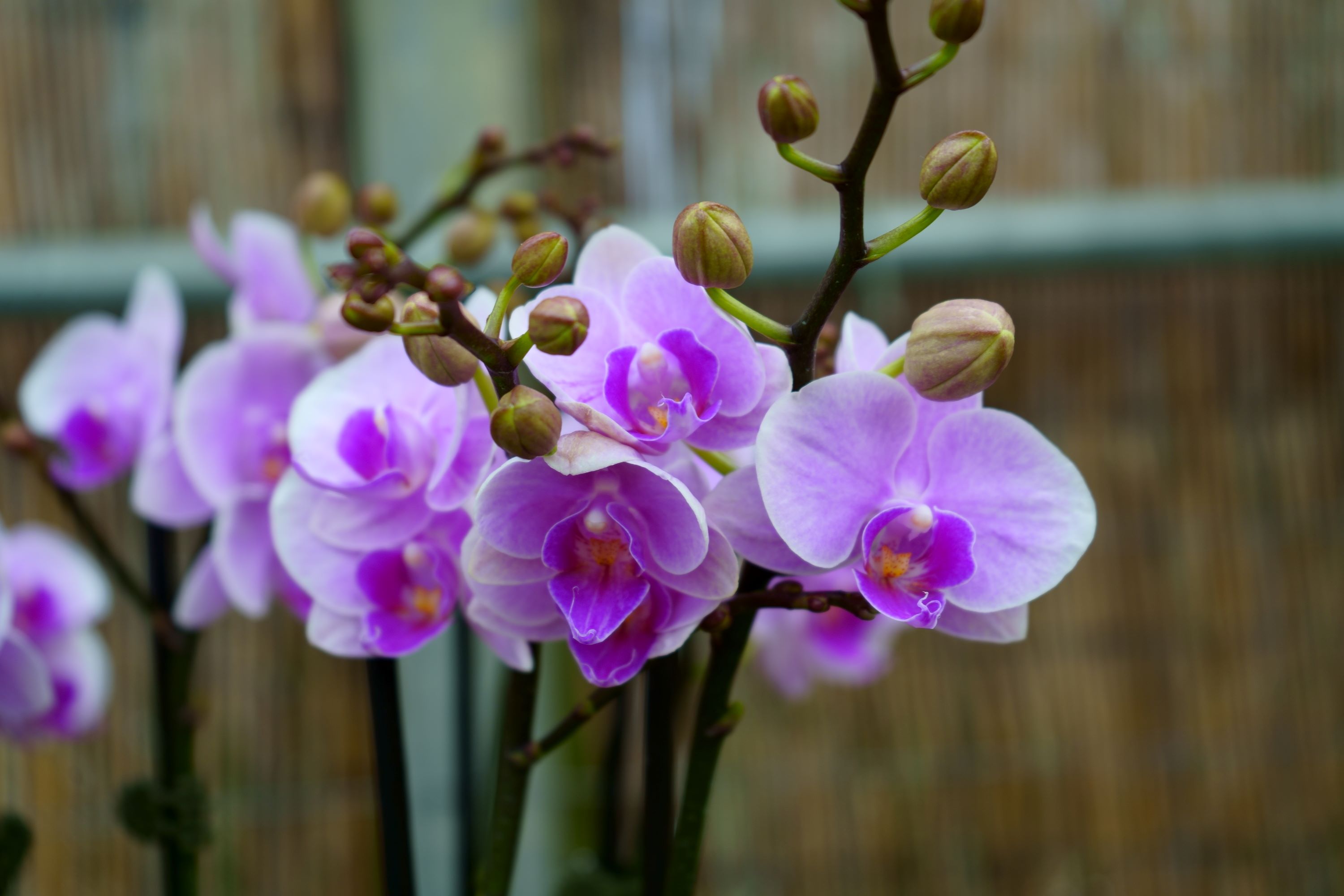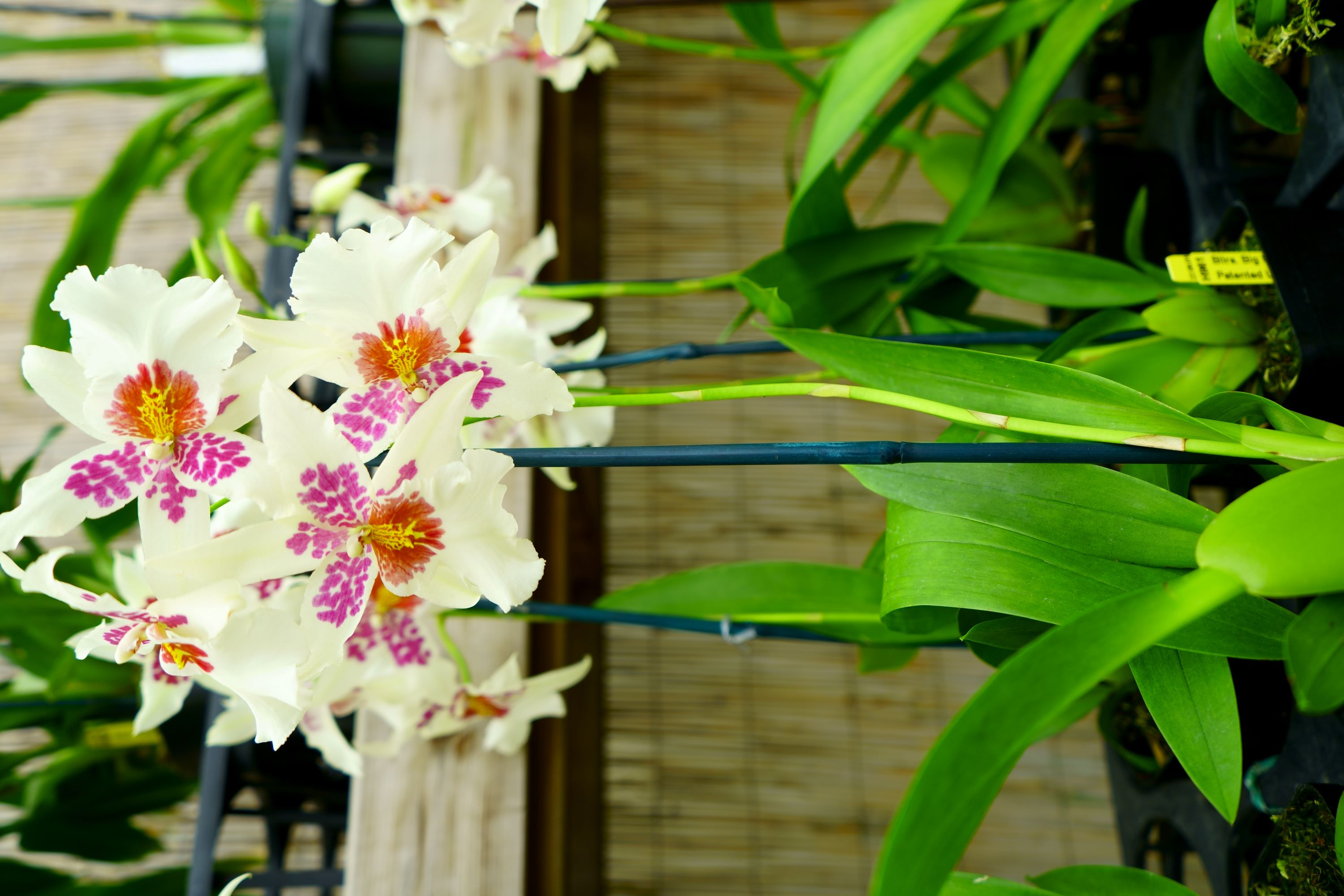- Home
- Fertilizing
- Organic fertilzers
Best Natural Fertilizer for Orchids
Did you know some of the best natural fertilizers for orchids are already in your kitchen? From eggshells to banana peels, milk, rice water, molasses, and tea, these natural orchid fertilizers can complement your orchid care routine and are packed with nutrients that can help your orchids thrive. Other organic options like kelp, worm castings, bat guano, bonemeal, and blood meal are also excellent when used in compost tea. While organic fertilizers don’t provide exact nutrient ratios, using a variety ensures your orchids get a wide range of minerals, trace elements, and beneficial nutrients.

Heavenly Orchids participates in affiliate marketing programs, which means we may earn commissions on qualifying purchases made through our links. We only recommend products we genuinely believe in.
Unlock the Secrets to Beautiful Orchids! Get Your Free Care Guide Today!
Eggshells: A Calcium Boost
Eggshells are rich in calcium, which strengthens orchid cell walls and promotes healthy growth. Used as part of an organic orchid fertilizer regimen, eggshells can help support stronger roots and stems. Here’s how to use them:
- Eggshell Tea: Clean and dry eggshells, grind them, and steep in water for one week. Use the tea to water your orchids.
- Slow-Release Fertilizer: Grind dried eggshells into a powder and sprinkle them into the potting medium for a gradual nutrient release.
Banana Peels: Potassium Powerhouse Best Natural Fertilizer
Banana peels are a fantastic source of potassium, phosphorus, and calcium. Try these methods:
- Banana Peel Tea: Steep fresh banana peels in water for 48 hours, then dilute with 4 parts water before use.
- Dried Powder: Cut peels into thin strips, dry them in the sun for two days, and grind into a powder to sprinkle on the growing medium.
Milk: A Nutrient-Rich Best Natural Fertilizer and Insecticide
Milk isn’t just for drinking—it’s a natural fertilizer and insecticide for orchids, packed with calcium, vitamin B, proteins, and sugars. These nutrients promote root development, strengthen cell walls, and enhance overall plant vigor.
How to Use:
- Use low-fat (1% or 2%) milk—avoid full-fat or skim milk, as they can cause issues.
- Mix 1 part milk with 4 parts water and apply as a foliar spray or to the growing medium. Milk-based sprays work best when paired with proper orchid watering techniques to prevent mold or overwatering.
Why It’s Great:
- Provides essential nutrients for healthy growth.
- Acts as a natural insecticide when used as a foliar feed.
A Word of Caution:
While milk is beneficial, overuse can lead to harmful bacteria or fungi growth. Use it sparingly and in moderation to keep your orchids thriving without risking their health.
Rice Water: Nutrient-Rich Elixir
Rice water is an excellent organic fertilizer, containing trace amounts of nitrogen, phosphorus, and potassium, as well as starches that feed beneficial mycorrhizae on orchid roots. It’s especially helpful during the flowering stage, giving your orchids the extra boost they need to produce stunning blooms.
How to Make Rice Water:
Soak rice in water for 30 minutes or more.
- Strain the water into a bottle or jar.
- Let it ferment for one week, keeping it out of direct sunlight.
- Loosely screw on the cap or cover with a porous cloth to allow airflow while preventing contamination.
How to Use:
- After fermentation, dilute the solution 1:1 with water.
- Spray it on the roots and leaves as a foliar fertilizer. For best results, follow the steps in our Ultimate Guide on How to Water Orchids to avoid overwatering or nutrient lockout.
Bonus Benefit:
Rice water also acts as a natural insecticide, helping to protect your orchids from pests while nourishing them.
Unsulphured Blackstrap Molasses: Microbial Feast
One of the best natural fertilizers, blackstrap molasses is rich in sugars that feed beneficial microbes and contains trace minerals like calcium, magnesium, manganese, potassium and iron.
- How to Use: Mix 2 gallons of water with 1 teaspoon of Epsom salts and 2 tablespoons of molasses. Apply as a soak or foliar spray.
- As a compost tea: It is usually used in combination with other organic fertilizers and is especially beneficial in the making of compost tea.
Black Tea: Rehydrate and Revitalize
Black tea contains tannins, similar to those found in tree bark and moss, making it ideal for rehydrating orchids. Black tea soaks are beneficial for rehydrating and revitalizing dehydrated orchids.
- How to Use: Soak a tea bag in filtered water for 5–10 minutes, then soak the orchid roots in the solution. Repeat daily for dehydrated orchids.
My all-time favorite tea is Barry's Tea from Ireland. When it comes to black tea there is no other tea that compares in flavor and taste. This tea is so strong that you could make orchid tea solution with the leftover tea bag. I have only had one tea in my life that was better than Barry's Gold blend and that was some Oolong Tea that I bought from a hill tribe on the border of Thailand and Myanmar. But that's a tale for another day.
Kelp: Possibly the Best Natural Fertilizer
Kelp seaweed extract is one of the best natural fertilizers available, packed with essential nutrients that orchids love. It contains macronutrients like nitrogen, phosphorus, and potassium, as well as micronutrients such as boron, cobalt, calcium, iron, magnesium, manganese, molybdenum, sulfur, and zinc. Plus, it’s rich in 16 amino acids and trace amounts of vitamins B1 and C.
Why Orchids Love Kelp:
- Liquid kelp extract works wonders as a foliar feed or in water culture, providing a quick nutrient boost.
- It’s a fantastic addition to compost tea, enhancing its nutritional profile.
How to Use:
- Apply liquid kelp as a foliar spray or mix it into your orchid’s water culture.
- Add it to compost tea for a nutrient-rich soak or spray.
Orchids thrive when treated with kelp, and its centuries-old use as a fertilizer for crops proves its effectiveness. For a high-quality option, check out this Kelp Fertilizer.
Additional Organic Fertilizers
Expand your orchid’s nutrient intake with these options:
- Alfalfa, Worm Castings, Bat Guano, Bonemeal, Blood Meal: Best used in compost tea for a nutrient-rich foliar spray or soak.
- Epsom Salts: Provides magnesium and sulfur, which are essential for healthy growth.
Summary
Organic fertilizers are a gentle, natural way to nourish your orchids with essential nutrients, trace minerals, and amino acids. Since the exact nutrient ratios are unknown, it’s best to use a variety of organic materials to ensure a balanced diet. Combine organic fertilizing with chemical fertilizers for optimal results, and don’t forget to foliar feed with compost tea at least twice a year.












